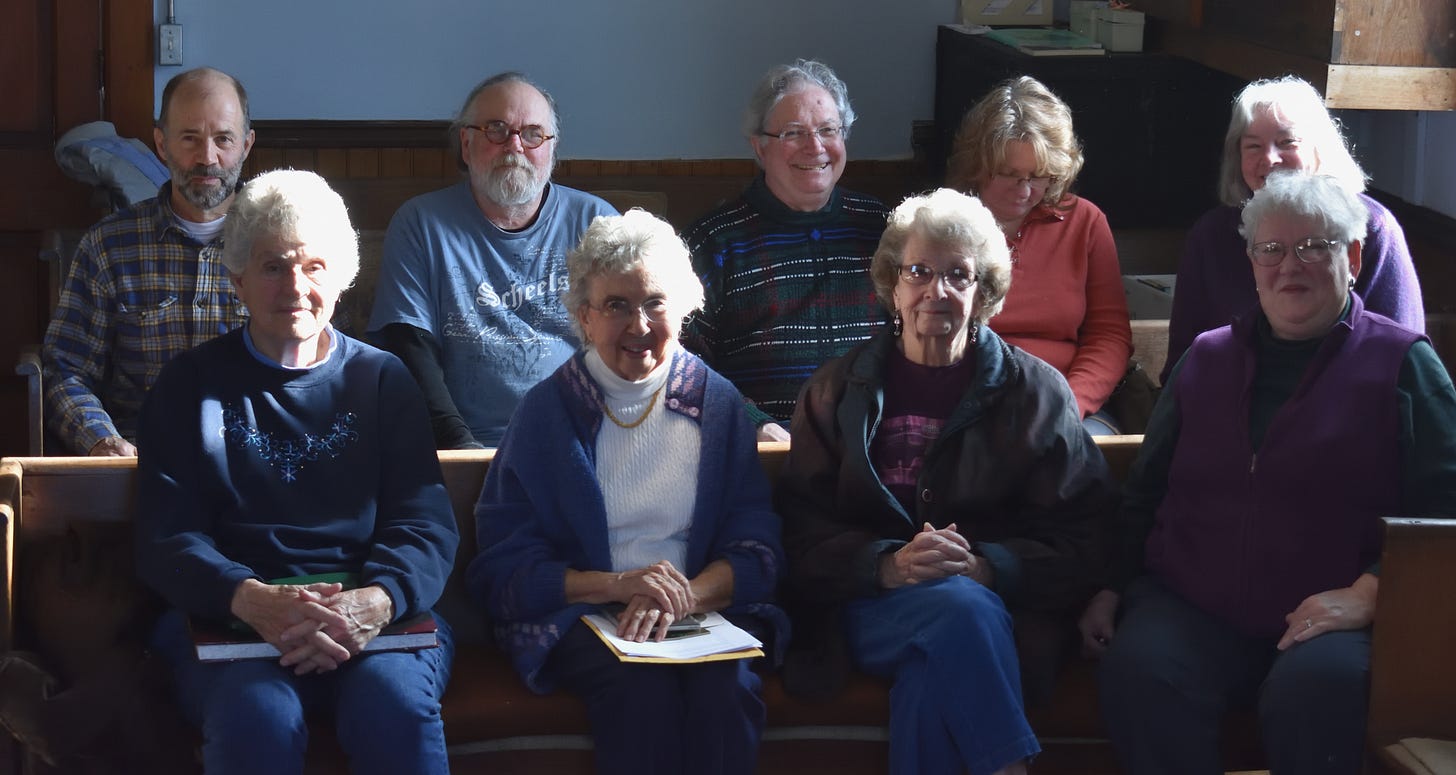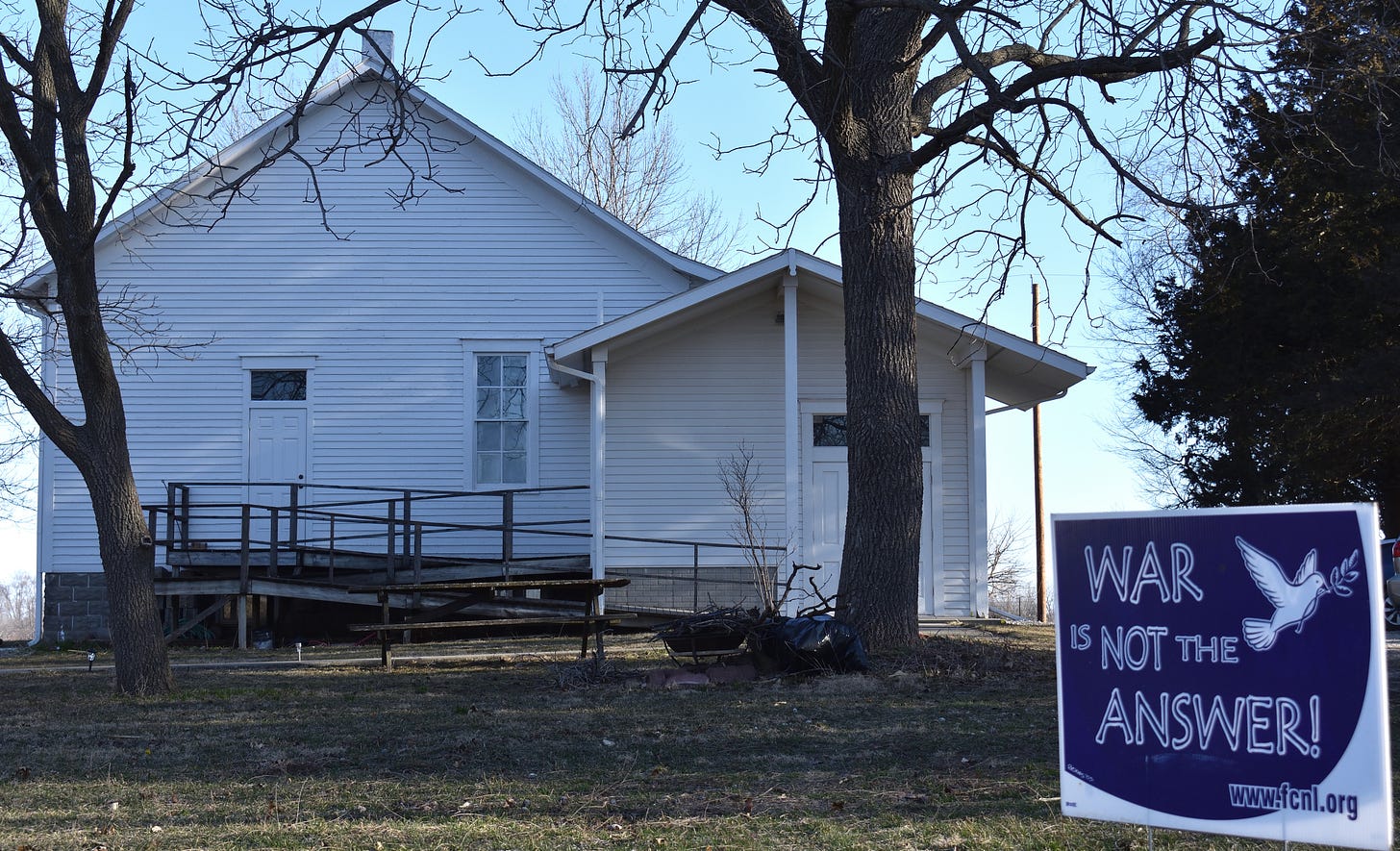I became a Quaker within Iowa Yearly Meeting (Conservative). My mother, though a Dorothy Day Catholic, taught theater and English at Scattergood Friends School for many years when I was little and most of my babysitters were Quakers from the school – all of them were kind, playful, and loving. When I began searching for a religious community as a young adult, I remembered their bright spirits and the way they lived their faith, so finding a Quaker meeting seemed an obvious choice. When I moved to Omaha, Nebraska in 1993, I started attending meeting for worship and felt immediately lovingly held and embraced. Not long after I began attending, the clerk of the meeting invited me to a yearly meeting event, Meadowlarks, in which Quakers who loved to sing got together for weekends and sang songs out of Rise Up Singing and Worship in Song – it didn’t matter if you couldn’t carry a tune, everyone sang their hearts out.
The first time I attended the yearly meeting sessions I noticed that the clerks and elders of the yearly meeting tended to be in their positions for a long time, but newcomers were enthusiastically invited to participate and lovingly introduced to the practices of the yearly meeting. The body seemed to hold their corporate practices with discipline and joy. The meetings for worship with attention to business were riveting to me, an opportunity to watch the Spirit move and the body serving as an open vessel to that Spirit. Not long into my tenure within the yearly meeting I volunteered to serve on a committee to wrestle with and possibly propose a same sex marriage minute. I was in love with a woman at the time, so for me the concern was deeply personal. The committee met often for sessions in which we educated one another, considered the language, and worshiped. After a year, we had each been transformed by the process, understood ourselves differently, and carried a minute to the yearly meeting with expectation and excitement – how could the yearly meeting not see the wisdom of our work?
There was palpable energy at that year’s session – rainbow buttons were everywhere, and it felt as though the support of the minute was strong, clear. When the minute was read on the floor of the meeting, two people stood in the way, however. One showed up after six years of absence just to stand in the way of this minute. If it had been only his voice in opposition, the minute would have been approved. The other person, though, was an engaged and respected member of the community, and the body wasn’t clear to move forward. It was painful, difficult – at least one lesbian couple left the yearly meeting and, as far as I know, never returned. But the small group that had brought the minute realized that we had undergone a process into which we had not invited the body, and that all the meetings needed to be invited to engage in the questions we had held and with which we had wrestled. So the minute went to each monthly meeting, and meetings considered the questions posed by the minute. At the following year’s sessions, the same exact minute was brought back to the floor. After the minute was read, there was a hush, and without comment, the minute was approved.
I learned a lot in that year about faithfulness and the mystery of love. The lessons of that process have stayed with me when I get frustrated or impatient as Friends struggle. This year the FGC Gathering will be in Iowa, at the invitation of Iowa Yearly Meeting (C). I’m excited to come home to IYM(C) Friends and to the lovely rolling hills and wildflowers of Iowa, where, though threatened by opposition, same sex marriage is legal.
This year, we will be releasing a new book about Iowa Yearly Meeting (Conservative) by Callie Marsh, A Lively Faith: Reflections on Iowa Yearly Meeting (Conservative).





